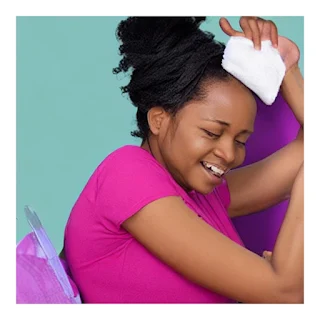Best Foods for Menstrual Cramps: Natural Relief Options
Menstrual cramps, also known as dysmenorrhea, affect millions of women around the world, causing discomfort and pain during their menstrual cycle. While over-the-counter medications can provide relief, many individuals seek natural remedies, including dietary changes. In this comprehensive guide, we will explore the best foods for menstrual cramps, offering insights into their nutritional benefits and how they may help alleviate discomfort.
Top Foods to Help with Menstrual Cramps
Omega-3 Fatty Acids
Omega-3 fatty acids, found in fatty fish such as salmon, mackerel, and sardines, possess anti-inflammatory properties. These fatty acids can help reduce the intensity of menstrual cramps by mitigating inflammation and promoting overall reproductive health.
Leafy Greens
Leafy green vegetables like kale, spinach, and Swiss chard are rich in vitamins and minerals, particularly magnesium. Magnesium plays a crucial role in muscle function and can help relax the uterine muscles, potentially reducing the severity of menstrual cramps.
Ginger
Known for its anti-inflammatory and pain-relieving properties, ginger can be a valuable addition to the diet for those experiencing menstrual cramps. Whether consumed as fresh ginger in tea or added to meals, it may help alleviate discomfort and reduce inflammation.
Turmeric
Curcumin, the active compound in turmeric, has powerful anti-inflammatory effects. Incorporating turmeric into your diet, either by adding it to dishes or consuming it in the form of turmeric tea, may help reduce menstrual cramp symptoms.
Pineapple
Pineapple contains bromelain, an enzyme with anti-inflammatory properties. Some studies suggest that bromelain may help ease muscle cramps, making pineapple a potentially beneficial fruit for individuals with menstrual cramps.
Bananas
Bananas are a great source of potassium, which plays a role in muscle function and fluid balance. Including bananas in your diet may help alleviate bloating and water retention associated with menstrual cramps.
Whole Grains
Whole grains like brown rice, quinoa, and oats are rich in complex carbohydrates, providing a steady release of energy. This can be beneficial for stabilizing mood swings and energy levels during menstruation.
Nuts and Seeds
Nuts and seeds, such as almonds and sunflower seeds, are excellent sources of magnesium, zinc, and omega-3 fatty acids. These nutrients contribute to overall reproductive health and may help reduce menstrual cramp discomfort.
Dark Chocolate
Dark chocolate, in moderation, can be a tasty way to boost mood and alleviate cravings during menstruation. Choose chocolate with a high cocoa content, as it contains antioxidants and may have mood-enhancing effects.
Chamomile Tea
Chamomile tea is known for its calming and anti-inflammatory properties. Drinking chamomile tea may help relax the muscles and alleviate stress, potentially reducing the severity of menstrual cramps.
Conclusion
Incorporating these nutrient-rich foods into your diet may offer natural relief for menstrual cramps. However, it's important to note that individual responses to dietary changes vary, and consulting with a healthcare professional is advisable, especially for those with severe or persistent menstrual cramp symptoms.
Additionally, maintaining a well-balanced diet, staying hydrated, and adopting a healthy lifestyle that includes regular exercise can contribute to overall reproductive health and may help manage menstrual cramps more effectively.
By making informed dietary choices, individuals can empower themselves to navigate their menstrual cycles with greater comfort and well-being.

